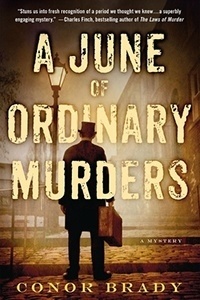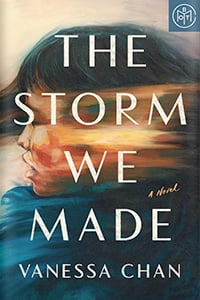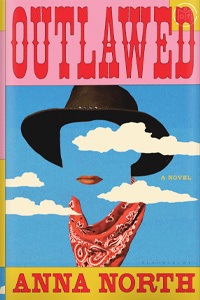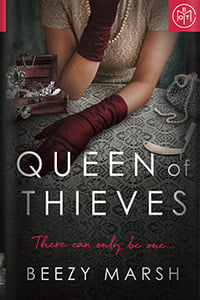

Historical fiction
A June of Ordinary Murders
by Conor Brady
Save $ with BOTM.
Quick take
Do the deaths of two nameless souls matter in the larger scheme of Irish identity, British rule, and the whole question of Empire? Yes, they do…
Why I love it
Nina Sankovitch
Bestselling Author
Blending fact and fiction, Conor Brady's historical mystery tells a vivid story set during the time of Queen Victoria's Golden Jubilee in 1887. Plans have been made to celebrate the Jubilee in Dublin to repair a years-old rift between the monarchy and Ireland. But conditions in Ireland are far from ideal for a celebration: Irish nationalists are fed up with English rule, and tensions over land, crops, and livelihood simmer.
For some, the sunny, blue skies are a metaphor for the British Empire, "upon which it was proclaimed the sun would never set." For others, the heat and unrelenting sun creates an atmosphere of humid, airless imprisonment, a metaphor for the reign of Queen Victoria suppressing Ireland into poverty and deprivation. Only the precious few with connections to England can rise above the grime, argue the Irish nationalists, and those fighting against her Majesty's rule promise to lift everyone up to the light.
In the midst of the heat-riddled celebrations, two bodies are found on the outskirts of Dublin. To Detective Sergeant Swallow, the murders appear unconnected to the upcoming visit of Prince Albert. But when Swallow is taken off the case — viciously warned away by Scotland Yard's Special Irish Branch — he begins to suspect deep, dark, and dangerous connections between the murders and the political intrigues simmering away in the unusual June heat. There is nothing ordinary at all in the weather, in the murders, or in the handling of the cases. Swallow should just walk away, for the sake of his career as well as for the safety of his family. But then he wouldn't be our hero, would he?
And hero he is, a complicated champion with his own dark history of drunkenness and loss, and hopes for a better future. Do the deaths of two nameless souls matter in the larger scheme of Irish identity, British rule, and the whole question of Empire? Yes, they do for Joe Swallow, and they do for us, as he takes us along into a web of love, deceit, power, and fear.
I received a mighty education into the history of Irish nationalism in reading A June of Ordinary Murders and was treated to a stunning thriller along the way. There's nothing better than that, in life and in books. Mystery, enlightenment, and satisfaction: my own metaphor for a good life and a very good read.

































































